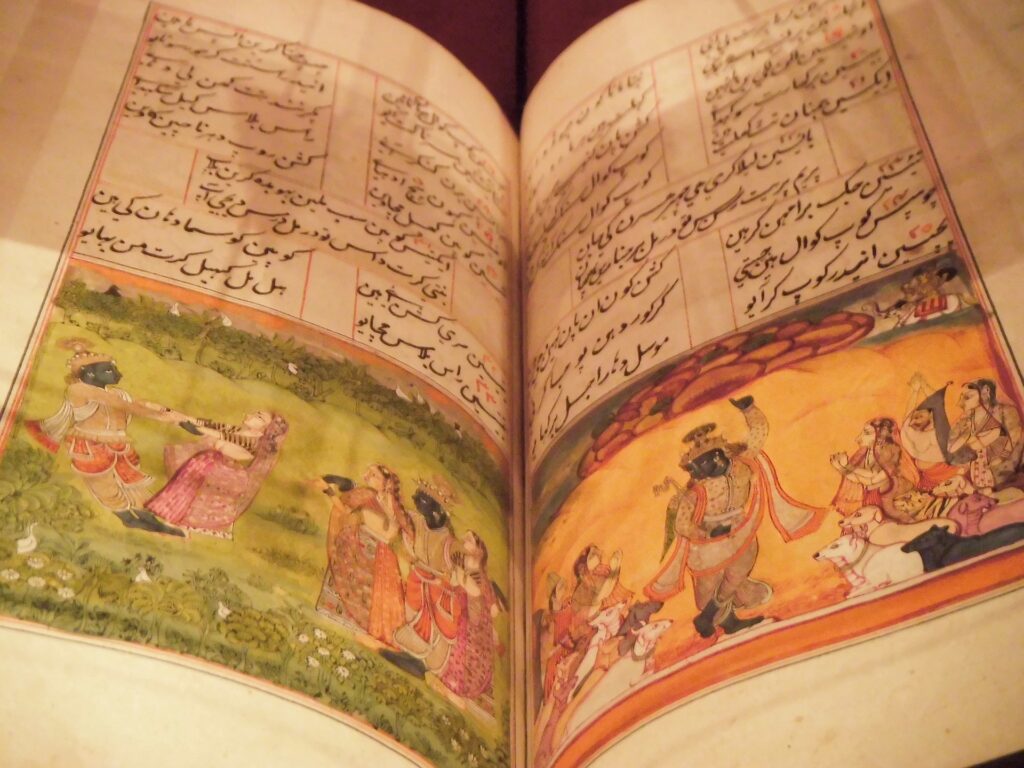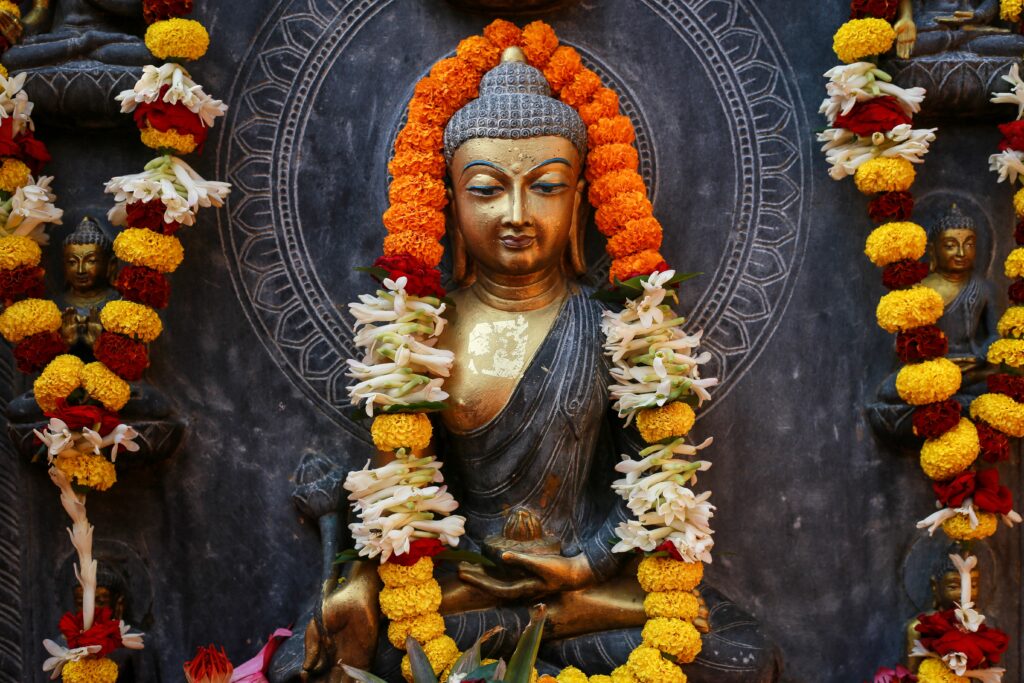The Bhagavad Gita is the central text of yoga. It is slotted into the middle of the Hindu epic, the Mahabharata, just as the Pandavas (Arjuna’s family) are lining up for battle against the Kauravas. Arjuna is a Pandava and his brother (Yudhishthira) has a rightful claim to the throne, but those they are about to fight against are their own family and community. Seeing everyone lined up to fight against each other sends Arjuna into despair. He turns to Krishna (God) and asks, would winning even be worth it if we shed so much blood in the process? He’s having a moral crisis. He’s questioning not only what he’s about to do but the whole meaning of life.
In his time of crisis, when he is at his most vulnerable and uncertain, Lord Krishna replies to him;
“This despair and weakness in a time of crisis are mean and unworthy of you, Arjuna. How have you fallen so far from the path to liberation? It does not become you to yield to this weakness. Arise, with a brave heart, and destroy the enemy.”
When I read this I laughed out loud. Krishna doesn’t empathise with Arjuna. He doesn’t say, “My dear boy, I know this is a difficult time for you. You should take some time out and explore your thoughts and feelings further.” He doesn’t praise Arjuna for his moral concerns. He tells him he has gone astray and that he does himself no service with his behaviour. That he is giving into his weakness instead of acting with bravery.
Arjuna is so upset that he has reached the point where he doesn’t even know if it would be better for his side to win or the other side to win. “Why would we care to live if we killed them? I am utterly confused.” In this time of crisis where he no longer knows what is right or wrong, he submits to the Lord and asks to be shown the way. Even at this time an empire holds no meaning and “seems empty” for Arjuna. “Oh Krishna, I will not fight.”
Interpretation
Often, the Bhagavad Gita is interpreted on a psychological level as the fight against one’s inner demons. We assume that the spiritual life is one of peace, and in this vein the Bhagavad Gita is interpreted as Arjuna entering a psychological war – the war between good and evil within himself, because as Solzhenitsyn said “the line separating good and evil passes… right through every human heart”.
Perhaps instead, it is simply the story of life. Many of us have experienced that period of despair where life has got too much and we could totally give up. Some of us have found ourselves in this moral relativist place in which Arjuna finds himself at the start of the Gita and we have ended up there for a long time, feeling like our own life and the lives of those we love matter no more than anyone else’s.
Perhaps the battle in the Gita is not a psychological battle but a “real” physical battle between two groups of people who really are prepared to fight to the death. If this is the case, what can we learn from Krishna’s advice to Arjuna?
Krishna’s advice
Krishna does not allow Arjuna to wallow in this place of despair. He does not even encourage him to explore his thoughts further. Instead, he tells him he must do his duty, that others are relying on him and if he were to walk away that would not do.
Arjuna was born into a warrior family in the warrior class and he is famed for his archery skills. Krishna tells Arjuna that it is his duty to fight; that others are depending on him to do his duty and that his life will not be worthwhile afterwards unless he does so. Is this not also a valuable lesson? I don’t believe he is telling Arjuna that evil lies outside of himself (in the form of the Kauravas) and he must slay those who embody it to rid the world of evil. Rather, he is telling Arjuna that running away will not liberate him. It is through selfless service to those around him that he will find freedom and liberation.
This lesson teaches us that fulfilment comes from giving ourselves to others and from fulfilling our obligations to others regardless of how that makes us feel. It tells us there is joy to be found in doing what we were born to do, and that we don’t have to spend our lives trying to figure out what it is we were born to do, we just have to look around us at the things our families and friends and communities ask of us and commit to doing what is required of us to sustain and preserve that community.
How this applies to our own lives
When things have gone wrong we cannot simply collapse, for what good does that bring us or others? Yes, take the time you need to feel what you feel. And then stand up and “do what has to be done to feed the children” as Oriah Mountain Dreamer says in her poem The Invitation.
Krishna is reminding Arjuna of who he has the potential to be. He is holding him to account and doesn’t let him give up or sink into despair or be less than his very best self. This is compassion in action. We all need to be reminded of who we are and who we have the potential to be. Reminded that, at our centre, we are divine; that we have the holy spirit in us already.
In telling Arjuna to do his duty Krishna is reminding Arjuna that he is not alone on this earth and in this life. He has responsibilities to others and it is through fulfilling these duties that he will find fulfilment and purpose in life. Sitting down and examining the meaning of life is one way to do it, but the karma yogi path is the path of action and so Arjuna is told to go out and live his life fulfilling his duties and responsibilities. In this way, by giving of himself to others and through selfless service to others, he will find peace and the meaning of life.
Alternative views
There are of course many criticisms that could be made of this interpretation, but I find it useful to contemplate in my own life that sometimes it is good to be guided by what those around us need from us rather than to constantly look within at what we consider the “right” thing to do based on our own needs and wishes.
It’s quite a 180 from what we usually associate with yoga or the contemplative path. It is a different lesson but perhaps it is one just as valuable as the contemplative tradition which says one must renounce the world in order to seek liberation within.
Perhaps Krishna’s advice might be helpful to hear, not on a psychological level but as a real-life, day-to-day explanation of how to live.



